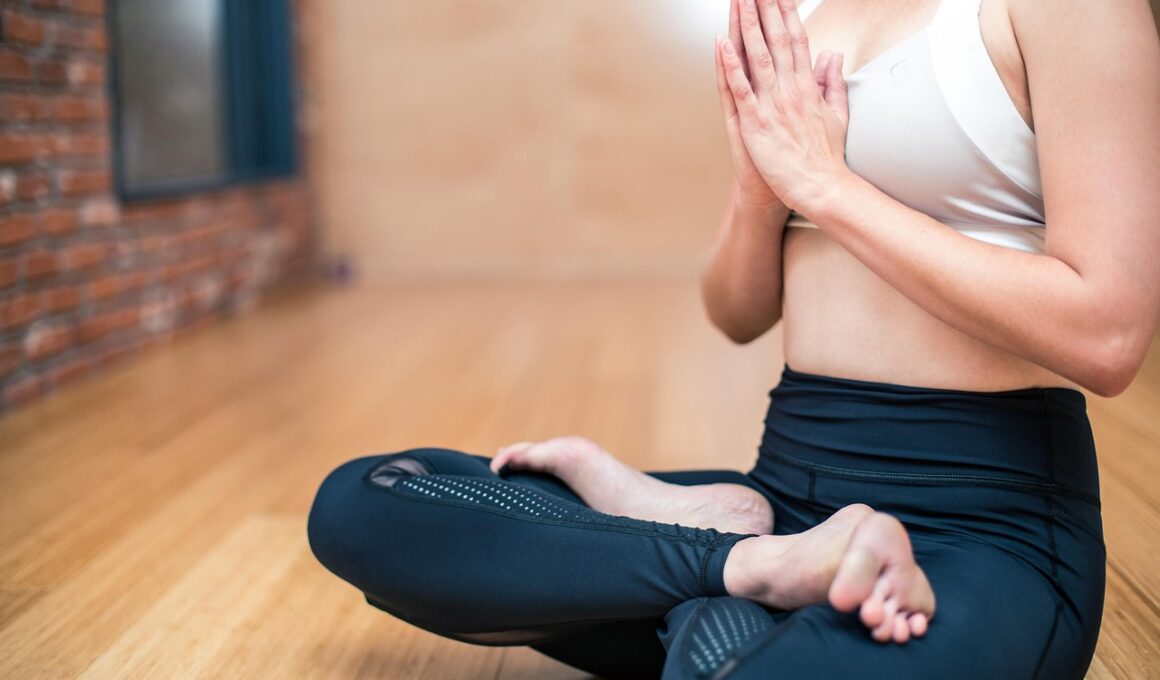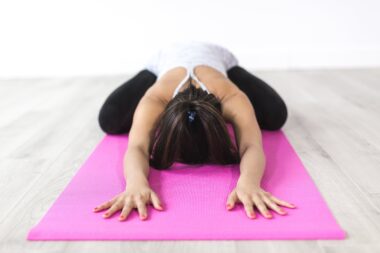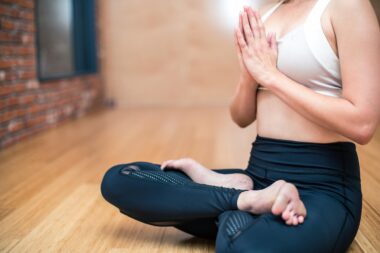Developing a Mindful Exercise Routine for Stress Management
Creating a mindful exercise routine can significantly help manage stress associated with mental disorders. Mindfulness-Based Stress Reduction (MBSR) through exercise allows individuals to focus on the present, which reduces anxiety and enhances overall well-being. Engaging in physical activity mindfully can cultivate a stronger mind-body connection, providing a sense of clarity amidst the chaos of daily life. To develop such a routine, begin by identifying exercises you enjoy, such as walking, yoga, or swimming. These activities encourage physical engagement and mental presence. Setting aside specific times during the week for these exercises promotes consistency. Along with choosing enjoyable activities, consider the environment where you’ll exercise. A calm, serene location can enhance the mindfulness experience, allowing for deeper relaxation. Embrace the process by paying attention to your breath and bodily sensations during exercise. Selection of the right equipment can also make a difference; comfortable clothing and supportive footwear are essential to prevent distractions. Gradually increase the duration of your sessions as your fitness level improves, emphasizing patience and adaptability as you develop your mindful exercise routine.
In addition to physical benefits, incorporating mindfulness into your exercise routine can enhance emotional regulation. Mindful practices allow you to observe your thoughts without judgment, fostering resilience against stress and anxiety. To integrate mindfulness into your exercise, begin with a short meditation before you start your workout. Take a few moments to breathe deeply and center your thoughts. As you engage in your chosen activity, focus on how each movement feels, the sound of your breath, and the sensations in your body. Whenever your mind starts to wander back to stressors, gently guide your thoughts back to the present moment. This practice will improve your ability to cope with challenges beyond exercise. Explore various settings for your routine; outdoors can be particularly invigorating. Nature provides a calming backdrop that enhances your mindful journey. Use technology to your advantage by utilizing apps or videos that promote mindfulness in fitness. Many resources are available online, offering guided sessions that blend physical activity with mindfulness techniques. This variety keeps your routine exciting and fresh while promoting mental clarity and emotional stability.
Benefits of Mindfulness in Physical Activity
Merging mindfulness with physical activity not only alleviates stress but also fosters significant health improvements. Research has demonstrated that engaging in mindful exercise can decrease symptoms of depression and anxiety by promoting self-awareness. Being fully present during workouts helps in tuning into your body’s needs, ultimately enhancing physical performance. The release of endorphins associated with exercise further elevates mood, creating a cycle of positivity. Mindful exercising also encourages a healthier relationship with food and self-image. When aware of physical sensations and emotions, individuals tend to make better food choices and enjoy a more balanced lifestyle. The focus on mindful practices during workouts trains your brain to better manage daily stressors outside of exercise. This adaptation can prevent overwhelming feelings and promote a proactive approach toward tackling life’s challenges. Establishing goals within your mindful routine, whether weight loss or increased endurance, provides structure for motivation. As your practice deepens, you may discover greater satisfaction in reaching these milestones, noticing improvements in both mental and physical aspects. Remember to celebrate each small victory; this reinforces your commitment and keeps the journey fulfilling.
In successfully developing a mindful exercise routine, it’s important to listen to your body. Mindfulness involves being aware of physical sensations, enabling you to know when to push limits or when to rest. Recognizing signs of fatigue or discomfort prevents injuries and encourages a sustainable approach to fitness. Over time, you’ll notice how consistency builds resilience not just physically but mentally as well. Additionally, consider integrating variety into your routine. Mixing different forms of exercise, such as strength training, cardio, and flexibility work, helps prevent boredom and targets different muscle groups. This balanced approach supports overall wellness; moreover, it stimulates mental engagement. Social interactions can also boost motivation. Exercising with friends or joining a class enhances accountability and creates a supportive community. Mindful exercise doesn’t have to be a solitary endeavor; sharing experiences can enrich your journey. Online communities are also valuable for motivation and sharing insights. Explore these platforms where others discuss their challenges and triumphs. These connections can inspire you, keeping your enthusiasm alive and showing you that others share your goals in cultivating peace through mindful movement.
Creating a Routine That Works for You
To create a personalized routine, begin by assessing your current fitness level. Understanding your starting point is crucial in establishing realistic and attainable goals. Track your progress to see which exercises resonate with you and modify your routine as you advance. Aim for consistency rather than perfection; sticking to a schedule enhances mindfulness practice. It’s advisable to set aside specific times for your workouts amidst your daily commitments. This prioritization reaffirms your dedication to managing stress effectively. Consider keeping a journal to document your experiences, thoughts, and emotions during your mindful workouts. Journaling helps in understanding patterns and identifying triggers that contribute to stress. Regular reflection will develop greater self-awareness, enhancing the mindful aspect of your routine. Another key component to successfully developing a mindful exercise routine is maintaining flexibility within your schedule. Life can be unpredictable; therefore, adapting to changes while staying true to your mindfulness objectives is essential. If a planned session cannot proceed, find an alternative that accommodates your needs. Finding balance ensures that mindfulness remains a key player instead of an added pressure.
As you continue to refine your mindful exercise routine, be open to feedback from your body and mind. This adaptability will enhance your overall experience, promoting a deeper connection with yourself. Remember that each individual’s journey is unique, and comparisons with others can often lead to discouragement. Focus on your progress and celebrate the small victories along the way. Consistency paired with patience will yield lasting results, both physically and mentally. Incorporating other wellness practices, such as nutrition and sleep hygiene, can complement your exercise routine. A holistic approach to health fosters well-rounded improvements in well-being, enhancing your journey with mindful exercise. Engaging in conversations with professionals, such as personal trainers or therapists, ensures tailored guidance suited to your individual needs. Don’t hesitate to seek help; utilizing professional insights can enhance your growth. Moreover, stay engaged with your inner dialogue. Understanding your feelings towards exercise can influence your success, offering insights into motivations or reluctances. Keep this consciousness active as you evolve. Mindfulness is as much about the journey as it is about the destination. Each step will contribute to your overall stress management and mental clarity.
Conclusion and Future Steps
In conclusion, developing a mindful exercise routine is invaluable for stress management and overall mental wellness. This practice not only helps in alleviating stress but also builds a positive relationship with yourself through movement. As you begin this journey, recognize the importance of self-compassion and patience. The goal is not perfection but progress. Allow yourself to experience the ups and downs, understanding that growth takes time. Regularly assess your needs and interests; flexibility within your routine fosters sustained engagement. As you discover what works best for you, remember that your journey in mindful exercise is continuously evolving. Each day offers a new opportunity to learn and grow. Engage with various resources such as books, online courses, or community groups to stay motivated and connected. Create an environment that supports your mindful efforts by surrounding yourself with positivity and inspiration. Ultimately, prioritize your mental health and well-being; investing time in developing a mindful exercise routine is a step toward self-care. Embrace the process, and let your mindful movement lead you to stress relief and a healthier, happier life.
Whether you’re a beginner or experienced in exercise, the principles of mindfulness can greatly enhance your experience. Remember to approach your journey with an open heart and mind. Make exercise a joyous part of your life, enabling it to serve as a powerful tool for managing stress effectively.





